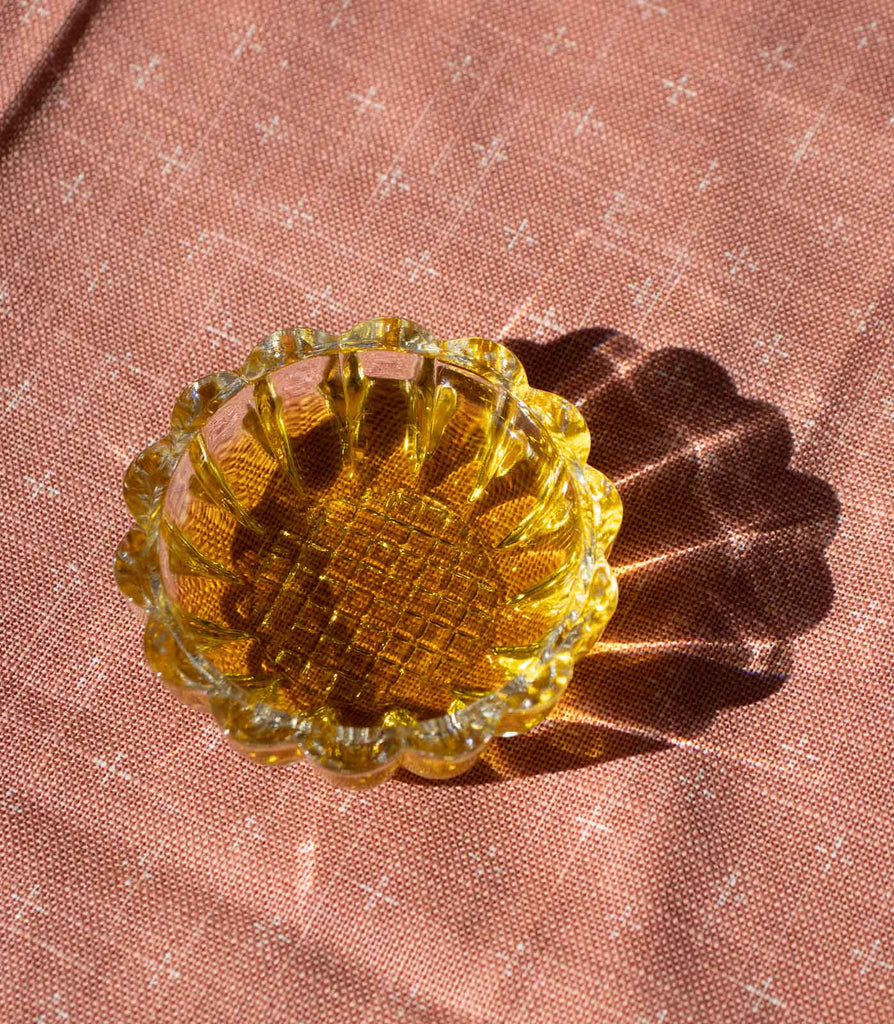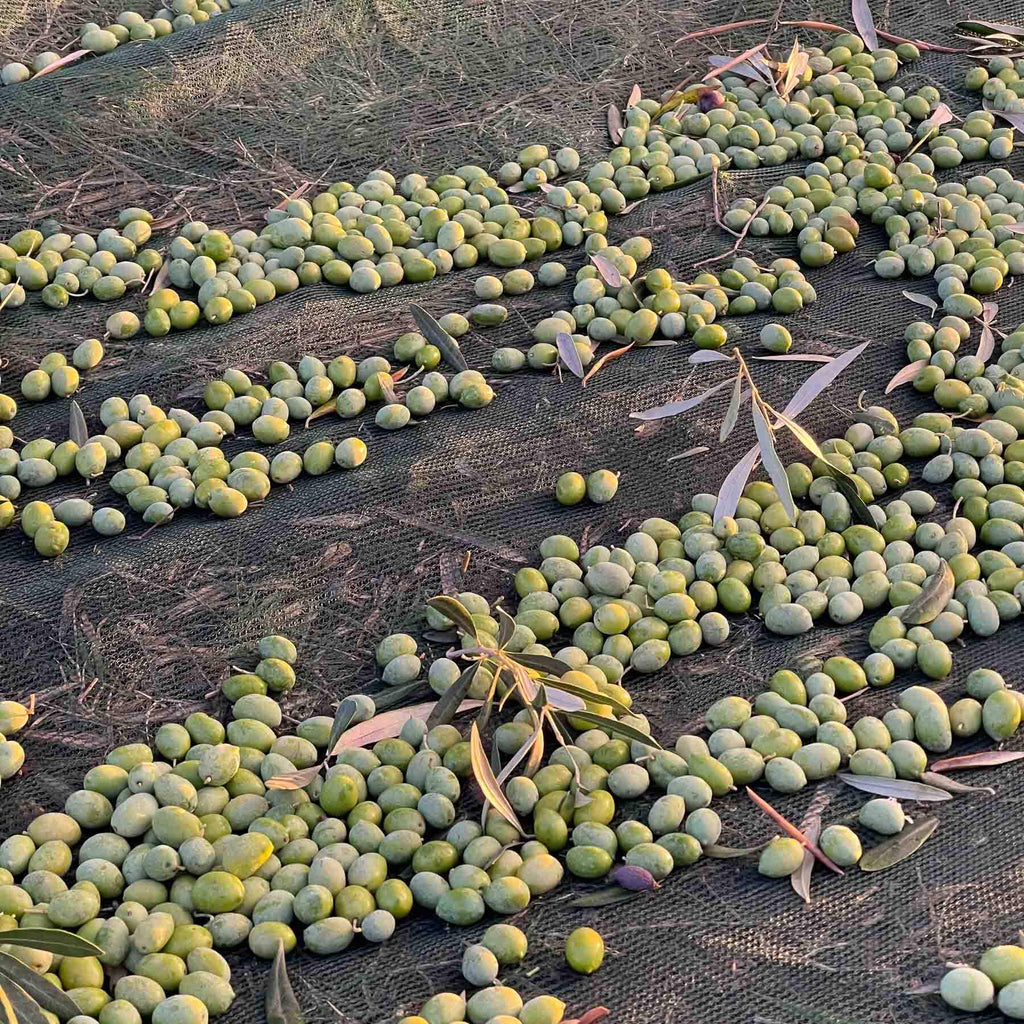Pretty much all cooks have some type of vegetable oil in their pantry. Afterall, fat helps set the foundation for a dish and is the ultimate flavor transporter. From pasta to brownies this is true in both savory and sweet applications!
However, there's a lot of confusion around what exactly the fat is, how it's made, and how it compares to products like EVOO.
Let's dive deep into the characteristics, composition, health benefits, and culinary uses for vegetable vs olive oil to help you make informed choices in your kitchen.

What is Vegetable Oil?
Vegetable oil is an oil that's derived from various plant sources and commonly used for cooking and food preparation. It's extracted from the seeds, fruits, or nuts of plants, and typically liquid at room temperature.
The term 'vegetable oil' actually refers to a group of oils rather than a single product. For example, corn, soybean, and olive oil are all technically vegetable oils. However, they do not have the same nutritional make up or benefits.
The term 'vegetable oil' typically refers to high processed cooking oils that have very low nutritional value and few health benefits, such as canola, sunflower, or soybean.
Many cooks view vegetable oil as a versatile cooking fat and use it in culinary applications such as frying, sautéing, baking, and salad dressings. In addition, it's believed to have a neutral taste and ability to withstand high cooking temperatures.
It's important to note that while it's a commonly used cooking fat, there's ongoing debate about the adverse health effects of certain types of vegetable oils, particularly those that are highly processed and go through chemical extraction.

How is Vegetable Oil Made?
It's made through a process called extraction, which involves separating the oil from the plant source. The specific method of extraction can vary depending on the type being produced. There are two common methods, mechanical milling and chemical extraction.
Mechanical Milling
This process is often used to extract oil from seeds, nuts, and fruit such as sunflower seeds, soybeans, peanuts, and olives. The seeds, or fruit, are cleaned, de-hulled, and then go through a mill.
This process can vary depending on the type of seed or fruit, however, they're typically crushed or pressed in order to prep for extraction. The crushed material then goes through a centrifuge which separates solid material (seed cake) from water and oil. The final steps are filtration and refinement (optional).
Chemical (Solvent) Extraction
This method is used for plants, seeds, or nuts with lower oil content, such as canola (rapeseed) or corn. In solvent extraction, the seeds are first cleaned and de-hulled. They are then crushed and subjected to a solvent, usually hexane, which helps dissolve the oil. The mixture is then separated from the solid material, and the solvent is evaporated to obtain the vegetable oil.
Products that go through this type of extraction are some of the most processed cooking fats on the market and may present the highest health risks to consumers.

Refining
After the initial extraction, the products often undergo a refining process to remove impurities and improve their quality. Refining typically involves processes such as degumming (removal of gums and phospholipids), neutralization (removal of free fatty acids), bleaching (removal of pigments and contaminants), and deodorization (removal of odors and flavors). These steps help enhance the product's flavor, color, and shelf life.
It's important to note that the exact production process can vary depending on the specific type of vegetable oil and the manufacturer. Different products may require additional steps or variations in the extraction and refining processes.

Types of Vegetable Oil
There are many different types of vegetable oils, including:
- canola
- grapeseed
- avocado
- peanut
- sunflower
- soybean
- corn
- olive (which has different grades)
Each type has its own distinct flavor, smoke point, and nutritional profile. Home cooks in North America typically see canola, sunflower, avocado, and olive oil at their local groceries stores.
Related: Canola vs Olive Oil
What is Olive Oil?
A natural cooking fat obtained from the fruit of the olive tree. It's made by milling fresh olives and extracting the oil through mechanical means. However, there are different grades which all go through different levels of refinement.
Different Types
There are several different grades of olive oil including regular, virgin, and extra virgin. The two most commonly found on grocery store shelves in North America are regular and extra virgin. Regular is the most refined while extra virgin is the least refined.
Regular goes through a refinement process which uses heat and other methods to deodorize and remove color from the product. While extra virgin is exclusively produced with freshly milled fruit and only goes through a filtration process. Extra virgin is not heated or cut with other oils making it the leas processed, freshest, and most flavorful cooking fat on the shelf.
Related: What Makes EVOO Extra Virgin?

Olive Oil vs Vegetable Oil
As stated previously, the term 'vegetable oil' refers to an entire category of cooking fats. However, when consumers use the term they typically aren't talking about super heart healthy fats such as olive oil, especially extra virgin, but rather heavily refined cooking fats. Here are some of the main differences between these products.
Common vegetable oils such as canola, corn, soybean, and sunflower are heavily processed and refined. They go through a chemical extraction process which which uses hexane as a solvent. This refinement process strips many of the nutritional and health benefits from the cooking fats.
Olive oil on the hand does not go through nearly as much refinement. EVOO is produced with freshly picked olives that are milled shortly after harvest. The fruit cannot be milled at a maximum temperature of 80.6°F (27° C). In addition, the product must meet parameters for free fatty acids, peroxide levels, and more.
Which is Healthier?
Olive oil, especially extra virgin, is healthier because it contains high levels of antioxidants, mega-3 fatty acids, vitamin E and K, and also has anti-inflammatory properties.
Other vegetable oils such as corn, canola, soybean, and palm are known as RBDs which stands for refined, bleached, and deodorized. They are chemically extracted using hexane and during the manufacturing process traces of hexane can remain within the oil.
In addition, they can contain trans-fat, which is never found in EVOO.
Can You Substitute Vegetable Oil for Olive Oil?
Yes, this is a super easy easy swap, just use a 1:1 ratio. You can substitute in both sweet and savory dishes such as pasta, roasts, brownies, cakes, and more!
What are Best Storage Practices?
To preserve the quality of both products, it's important to practice proper storage practices. Always store bottles and tins in a cool, dark place away from direct heat sources and light (both sunlight and artificial).
Once a bottle of EVOO is open it's best to use it within 45 days to enjoy optimal flavor profiles. Do not store bottles or tins in the refrigerator because it will diminish the quality of the product.
Read more about best storage practices here.
What About Other Types of Cooking Fats?
We've written extensively about both avocado and coconut oil. When it comes to taste it's a personal preference. However, when it comes to nutrition, smoke point, and an all around great cooking product EVOO is the best.
Shop our collection of high quality Italian EVOOs!
Recipes you might like...
Should You Put OO in Pasta Water?
Hey, we wrote a cookbook and guide called The OO Enthusiast, have you ordered it yet?
If you make this recipe please let a comment and let us know! We love to hear from you. If you’re on Instagram, Facebook, or TikTok don’t forget to tag us and use #EXAUoliveoil so we can repost!











Leave a comment